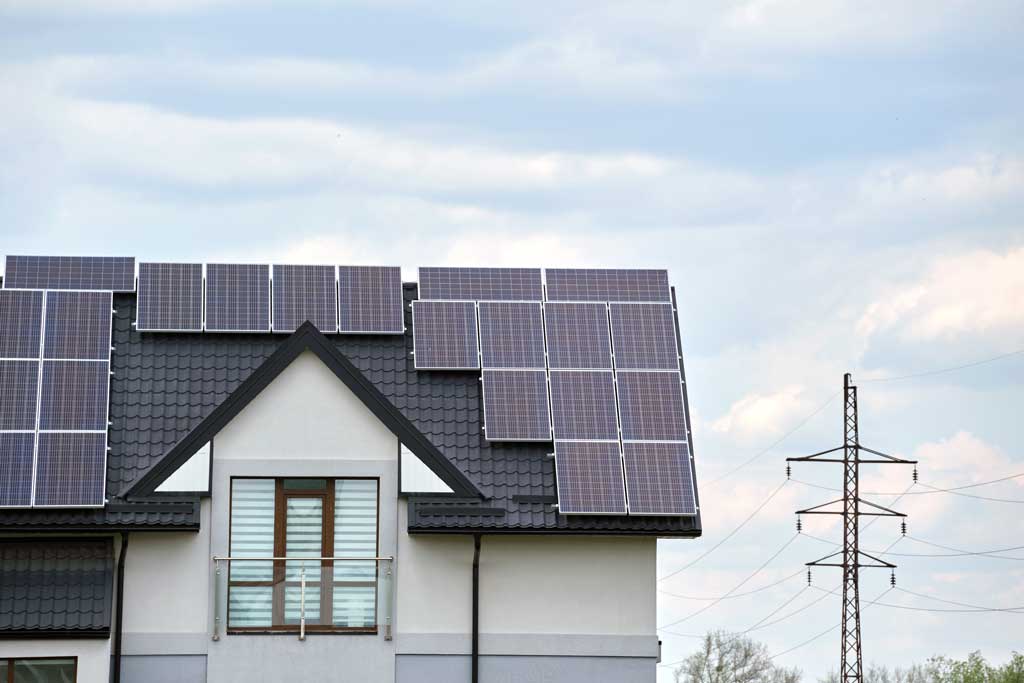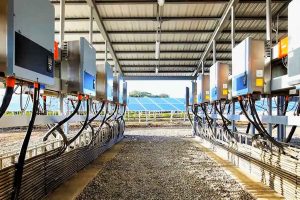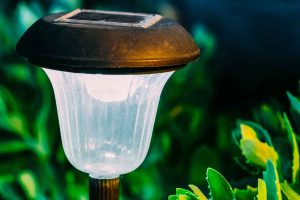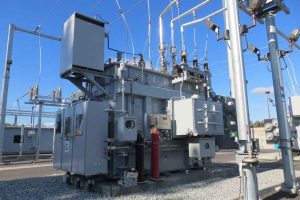If you’re thinking about average home solar system size, you probably want to know what size system best fits your budget and lifestyle.
Solar panel prices have dropped recently, making solar an increasingly popular option for homeowners looking to save on their energy bills. Solar systems can range from a few hundred watts to 10 kilowatts.
Size of a residential solar home system
The average home solar system size will depend on several factors. The most important ones include the following:
- Your energy needs. How much electricity do you use every month? If you live alone and are only using a few lights and television, it may not make sense to install as many panels as someone living in a larger house with more appliances like washers, dryers, and air conditioners.
- You need to know if your roof space is accessible and available. You need enough room for your solar panels to capture enough sunlight to power all the things in your home that require electricity, most often appliances or entertainment systems.
- Some roofs are more suitable than others. Ideally, they should face south so they get maximum sunlight exposure during the day but also be free from shade by tall trees or other buildings nearby which could block sunlight.
Cost Of Solar Panel
The average home solar system size in the U.S. is $10,000. This includes the installation and maintenance fees and the price of solar panels. On top of this, specific state and local incentives can be applied to reduce your out-of-pocket expenses for your new home solar system.
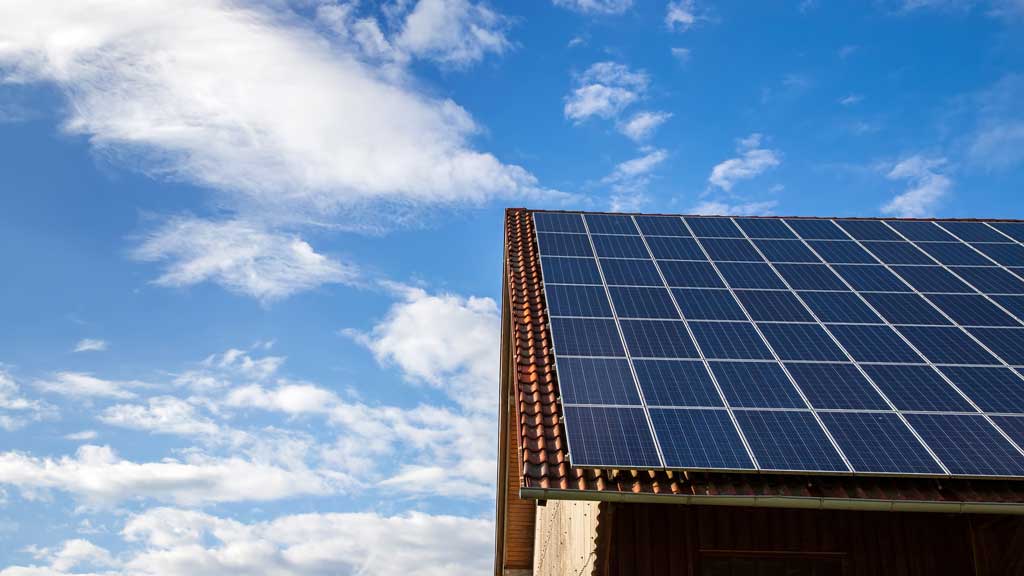
In addition to reducing your monthly electricity bill, installing a solar panel system on your home can save you thousands over time by enabling you to produce more electricity than you use each month.
Do Solar Panels Cost How Much To Install?
The average cost of a solar panel system in the U.S. is $10,000. This includes the installation and maintenance fees and the price of the solar panels. On top of this, specific state and local incentives can be applied to reduce your out-of-pocket expenses for your average home solar system size.
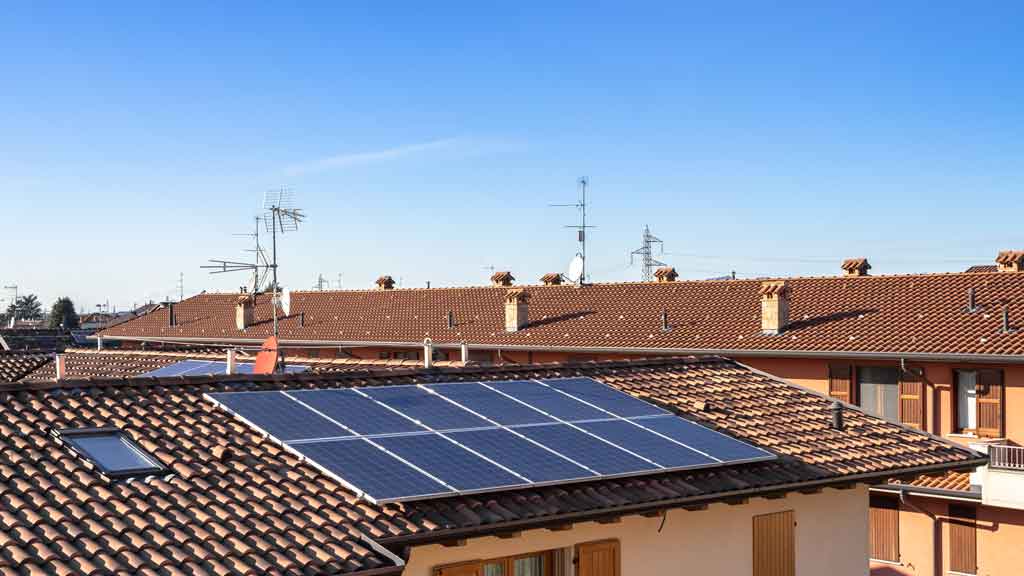
In addition to lowering your monthly electricity bill, installing a solar panel system on your home can save you thousands over time by enabling you to produce more electricity than you use each month.
Net Metering And Feed-In Tariffs
- Net metering: This system allows you to sell excess electricity from your solar panels to the utility company. The utility company uses this extra electricity to power other people’s homes.
- Feed-in tariffs: A feed-in surcharge (sometimes called a solar renewable energy certificate or SREC) is a system where the utility pays you for any excess electricity generated by your solar panels.
- Federal Tax Credit: The federal government offers a 30% tax credit for solar panel installations. If you install solar panels on your home, the government will give you 30% of the cost back when you file your taxes.
Home Solar Systems For Different Uses
Solar panels can be used to power your home. If you’re interested in solar but don’t have a lot of space on your roof, you can also choose to install solar panels in your garage or shed.
You can use solar panels to power your car. If you own an electric vehicle, it makes sense that adding more solar panels would help charge up the battery faster so that you have more driving range per day.
Solar panels can power boats. You might want to consider putting some solar panels on the top of these vehicles if they stay outside all year round so that they are always ready for use when needed and won’t needlessly drain from overuse.
Average Annual Electricity Costs
The average home solar system size before tax credits was $18,840, and it would generate around 9,500 kWh of electricity a year. The average home solar system size is 5 kW, but this will vary based on how much energy you need.
Figure out what size solar panels work best for your needs when considering costs and efficiency factors such as roof space available (the more roof space available, the better.
Make sure you’re comparing apples to apples when shopping around. Not all solar panels are created equal, so be sure that the boards you’re looking at can provide the same wattage over a given period (this is why it’s essential to know how much energy your home uses).
Discover Why Green Energy Is Important For Your Home
Learn about the benefits of solar energy and how it can save you money on your energy bill. Schedule a free consultation with us, and we’ll help you find the right solar system for your home.
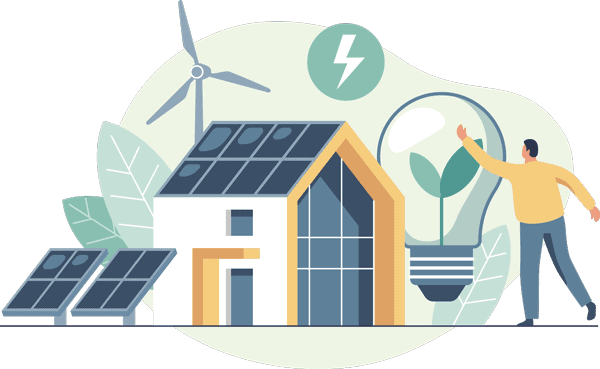
The Average Cost Had Declined
You may be surprised that the average home solar system size has declined dramatically. That’s good news for homeowners who want to invest in renewable energy without breaking the bank.
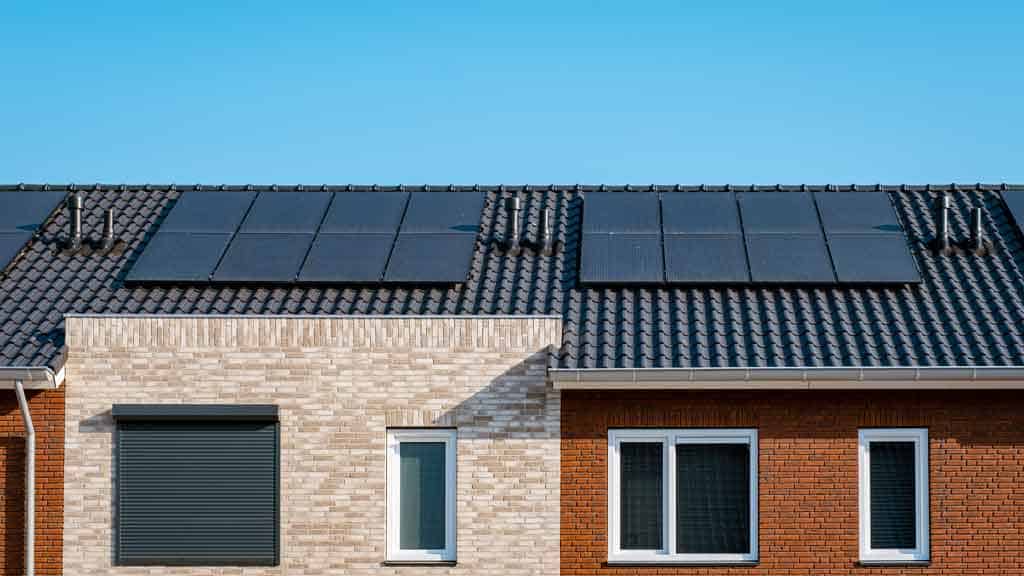
The typical homeowner can expect to pay around for a solar installation after accounting for any rebates or incentives offered by their local utility company.
The cost of your solar system will depend on several factors, including:
- The size of your home and its energy usage a larger home requires more panels
- Your local utility rates, the higher they are, the more you can save by going solar.
Solar panels come in various sizes and shapes depending on your needs. Still, if you’re thinking about adding solar power to your home, you’ll need to know whether you have enough space for a typical solar panel size and how many you’d need.
It’s important to note that many types of solar panels range in size and shape depending on your needs. However, if you’re thinking about adding solar power to your home, you’ll need to know whether you have enough space for a typical solar panel size and how many you’d need.
The amount of electricity needed depends on the average home solar system size. How much electricity you use—usually, homeowners with larger houses or who use more energy may need more than one system to meet their needs.
If you’re looking to add solar panels to your home, it’s essential to know how much electricity they can produce. A 5kW (kilowatt) solar system will generally have around 6,000-kilowatt hours (kWh) per year—this is enough power for about two or three households.
The Main Factors In Determining The Cost Are The Local Market Price For Energy.
The cost of a solar panel system depends on a few factors. The average home solar panel system size is around 5 kilowatts.
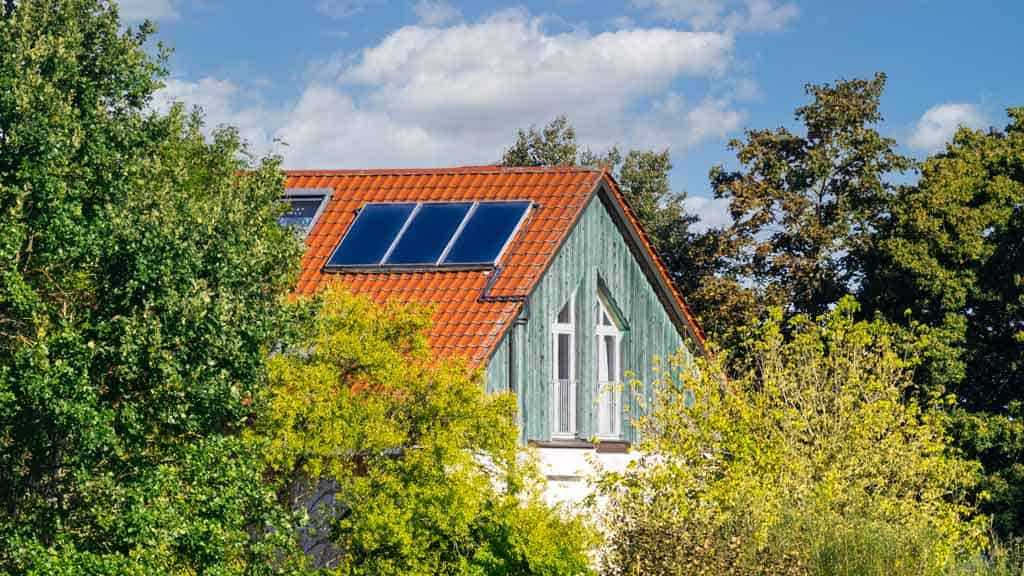
but ranges from 1kW to 10kW. The local market price for energy is the most significant factor in determining the cost of going solar. In states with high electricity rates, like Hawaii and California, the payback period for a solar panel system is shorter because the savings on your electric bill are higher.
The federal tax credit for solar panels also lowers the cost of going solar. Solar panel systems typically have a 20-25 year warranty, so you can be confident that your investment will last.
The main factors in determining the cost are the local market price for energy and the amount of electricity that incurs demand charges (the highest 15 minutes worth).
In general, demand charges are higher when air conditioning loads peak in the summer. Your solar system should be sized to produce sufficient power to meet your daily needs.
Installation cost is usually the most significant component of your solar energy system costs, accounting for more than half the total price tag.
Average Home Solar System Size Installation
The average size of a home solar system installation is 6 kilowatts. This means the average home can expect about 6,000 watts per hour from its system. Solar panels have become increasingly popular in recent years as the cost of installing them has decreased.
The average solar panel price has fallen by about 50%, making them a more affordable option for homeowners. Solar panels can provide homeowners with a significant amount of electricity, offsetting their monthly energy bills. In some cases, homeowners may even be able to sell excess electricity back to their utility company.
- The average size of a home solar system installation in 2018 was 6 kilowatts (kW), equivalent to 16 solar panels or 2,400 square feet of solar panels.
- It is roughly enough space to cover two typical suburban homes.
Incentives And Rebates Applied To Solar Installations.
The cost of solar panels, which has dropped considerably for a few decades and continues to do so, varies in size and where you live. If you’re interested in installing a home solar system, you’ll want to get quotes from multiple companies before signing a contract with anyone.
- The price of solar modules has fallen by about 80%.
- The average cost per watt for residential installations is between $2.80 and $3.00.
- Your local utility rates and electricity use habits matter most when determining how much it will cost you. Whether or not there are state rebates available for buying certain types of equipment, whether or not any federal tax credits apply, and if homeowners have access to low-cost financing options like loans provided by SolarCity.
The average solar panel installation cost is $3.50 per watt. This number varies depending on where you live and whether or not there are tax credits and rebates available for homeowners who purchase solar systems.
The price of solar panels has dropped considerably over the past few decades and continues to do so due to technological advancements in manufacturing techniques.
The average cost per watt for residential installations is between $2.80 and $3.00. This number varies depending on where you live and whether or not there are tax credits and rebates available for homeowners who purchase solar systems.
Savings And Significant Upfront Investment
More extensive solar panel systems will save your utility bill but require a more significant investment upfront. The cost of installing a solar system depends on your home’s size and how much electricity you use.
Over time, however, it is estimated that the average homeowner who installs solar panels will save between 50 and 60 percent off their utility costs annually. The more electricity you use from the grid each month, the more money you can save by installing a more extensive solar panel system in your home.
However, suppose you don’t use much energy or live in an area with high electricity prices like California. In that case, you may not need as many panels to see significant savings over time.
What Are The Benefits Of Solar Panels?
The main benefit of solar panels is that they generate electricity without emitting harmful emissions into the air. In addition, solar panels can provide power during peak hours when demand from homes and businesses is at its highest.
Which means utilities don’t have to spend as much money on additional power plants or energy storage facilities. Solar panels can offer many benefits for homeowners. They can help save money on your electric bills, increase the value of your home, and help the environment.
Most people know that solar panels can be used to generate electricity, but did you know that they can also provide backup power during a power outage?
A typical home solar system is about the size of a refrigerator and can weigh up to 400 pounds. The average home solar system size is enough to power about four 100-watt light bulbs for eight hours.
Solar panels work by converting sunlight into electricity. They are made up of photovoltaic cells, which are arranged in a grid pattern on the panel.
The cells are made of semiconductor materials, such as silicon. When sunlight hits the cell, it knocks electrons loose from their atoms. These electrons flow through the material to metal contacts on the sides of the cell, creating an electric current
Make Sure You’re Considering All Your Options.
There are some downsides to installing a more extensive solar panel system, so make sure you’re considering all your options. It might not be worth it if your home isn’t in an ideal location.
South-facing roofs get more sun and usually produce higher energy output than north-facing roofs. Also, if you live in an area where the sun sets earlier in the winter, having more panels won’t necessarily result in more energy production because of this factor and other variables like cloud cover or shade from trees or buildings.
Another important consideration when planning how big your home solar system should be is whether or not you have enough space on your roof for additional panels.
If not, some alternative options exist, such as leasing land from someone else with ample space nearby or adding portable panels that can be moved around depending on sunlight availability at different times throughout the day.
Lastly, suppose you’re interested in installing a solar panel system on your home but don’t want to deal with the hassle of having them wired up. In that case, many companies will come out and professionally install them for you.
Conclusion
If you’re trying to figure out the size and average home solar system size, it can be helpful to know that the average size is 6 kilowatts (kW), and the average price before tax credits. You also need to consider how much electricity your home uses and whether or not there are incentives available in your area.

